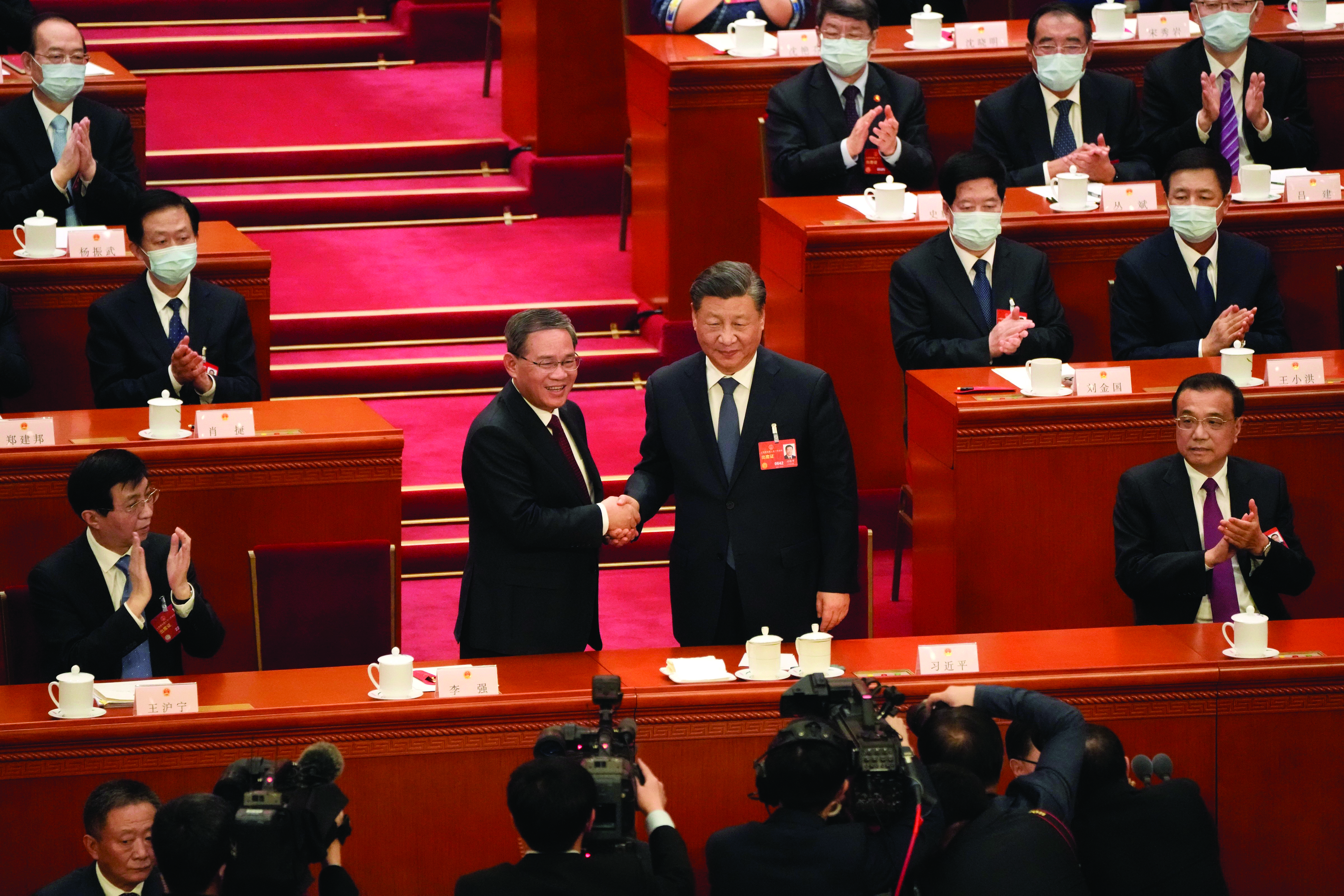Li Qiang named as China’s Premier to revive economy

Beijing: China’s parliament on Saturday confirmed President Xi Jinping’s trusted ally Li Qiang as the new Premier to revive the world’s second-largest economy hit by three years of ‘zero-Covid’ restrictions and worsening relations with the West. Li Qiang, 63, succeeds Li Keqiang, 67, who held the post for the last 10 years.
The annual session of the National People’s Congress, a largely ceremonial body which routinely passes the proposals of the ruling Communist Party of China, approved Li Qiang’s candidature after his name was proposed by Xi himself. However, his “election” unlike that of Xi was not unanimous. He was endorsed by 2,936 of the 2,947 NPC members who attended Saturday’s meeting, with three voting against and eight abstaining, the Hong Kong-based South China Morning Post newspaper reported. After the voting, Xi signed a Presidential decree appointing Li Qiang as Premier following which he took a pledge of allegiance to the Constitution.
Later Xi shook hands with Li Qiang in brief video clips shown on national television. After that Li Keqiang too shook hands with Li Qiang in what appears to be a smooth transfer of power considering that the outgoing Premier maintained a low profile in recent years apparently unhappy over the erosion of his power following the dramatic rise of Xi’s stature in the last ten years equating himself with party founder Mao Zedong. Later Xi shook hands with Li Keqiang and exchanged pleasantries apparently bidding goodbye as he headed to his retirement from politics. Li Keqiang, a contender along with Xi in the race for the Presidency in 2012, opted to retire last year apparently unhappy over the President’s big push to consolidate his power deftly using the massive crackdown against corruption and hold on the military.
He was regarded as a less powerful Premier in comparison to his predecessors. Li Qiang, stated to be a pro-business politician in Xi’s inner circle, will be the number two ranked official of the CPC and the government after Xi, who on Friday was confirmed as President and the head of the military for an unprecedented third five-year term.
Xi, 69, is the only leader after the party founder Mao Zedong to have more than two five-year tenures and he is widely expected to be in power for lifelong.
Bilateral ties between China and some of the major western nations, especially with the US, are at their lowest point in decades, leading to escalating tensions in technology and investment. Li Qiang worked with Xi in his early years during his provincial stints before he shifted to the central government as Vice President. He headed the party in Shanghai, China’s largest modern business hub.
However, his handling of the last year’s COVID outbreak, keeping the city of over 26 million under lockdown for about two months, drew sharp criticism at home and abroad as it resulted in heavy hardships for the population. Li Qiang, who remained a close ally of Xi, is expected to galvanise the private sector as well as foreign investments into the world’s second-largest economy, dispelling the impression that the government, which resorted to crackdown against top business houses like Alibaba in the last few years, is reverting to the state-owned enterprises.



